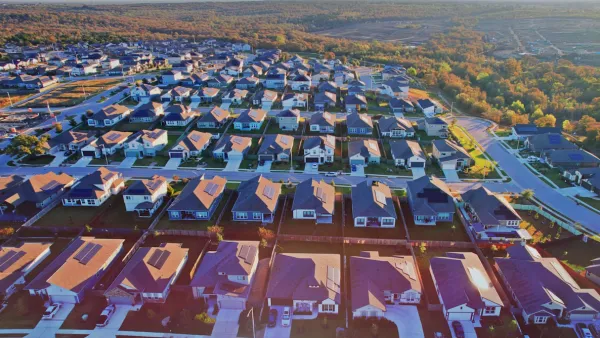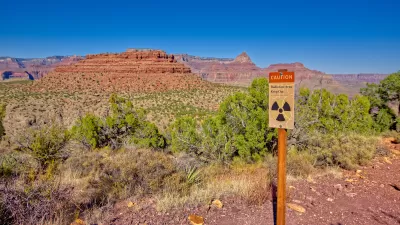Two Texas universities received a federal grant to embed sensors in road asphalt to create renewable electricity from the wind created by passing vehicles to power roadside lights and traffic signals.
"Researchers at The University of Texas at San Antonio (UTSA) and the Texas A&M Transportation Institute (TTI) have been awarded a $1.32 million contract from the Texas Department of Transportation (TxDOT) as part of the jointly funded Federal Highway Administration's (FHWA) state research program," according to Energy Harvesting Journal.
Its premise is to design and develop a system to harvest energy created by the movement of vehicles along the state's roadways and convert it into low-cost renewable electric power.
(T)he research team will develop piezoelectric sensors that can be placed under asphalt layers. Those sensors will use the energy generated from moving vehicles to power roadside lights, traffic signals, billboards, charging stations for electric cars and roadway monitoring sensors.
The grant funds only the first phase of the project, which will take 18 months. "If the subsequent phases of this project get the go-ahead, the researchers anticipate having a complete, functional harvesting and sensing system ready for implementation within three-and-a-half years."
Piezoelectric sensors and other devices including pneumatic tubes and inductive loops are used for more conventional purposes such as counting traffic according to Highway Performance Monitoring System. [See"Intrusive Data Collection Equipment".]
FULL STORY: Sensors that could harvest clean energy from traffic on Texas roads

Planetizen Federal Action Tracker
A weekly monitor of how Trump’s orders and actions are impacting planners and planning in America.

Map: Where Senate Republicans Want to Sell Your Public Lands
For public land advocates, the Senate Republicans’ proposal to sell millions of acres of public land in the West is “the biggest fight of their careers.”

Restaurant Patios Were a Pandemic Win — Why Were They so Hard to Keep?
Social distancing requirements and changes in travel patterns prompted cities to pilot new uses for street and sidewalk space. Then it got complicated.

California Homeless Arrests, Citations Spike After Ruling
An investigation reveals that anti-homeless actions increased up to 500% after Grants Pass v. Johnson — even in cities claiming no policy change.

Albuquerque Route 66 Motels Become Affordable Housing
A $4 million city fund is incentivizing developers to breathe new life into derelict midcentury motels.

DC Area County Eliminates Bus Fares
Montgomery County joins a growing trend of making transit free.
Urban Design for Planners 1: Software Tools
This six-course series explores essential urban design concepts using open source software and equips planners with the tools they need to participate fully in the urban design process.
Planning for Universal Design
Learn the tools for implementing Universal Design in planning regulations.
Heyer Gruel & Associates PA
JM Goldson LLC
Custer County Colorado
City of Camden Redevelopment Agency
City of Astoria
Transportation Research & Education Center (TREC) at Portland State University
Camden Redevelopment Agency
City of Claremont
Municipality of Princeton (NJ)




























